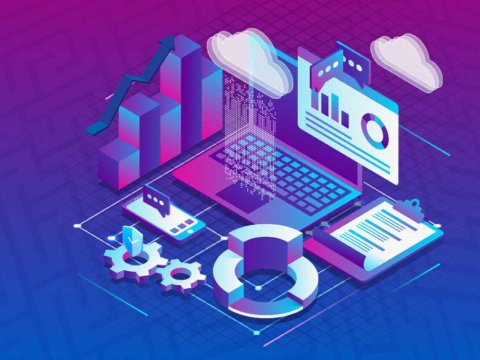Overcoming Modern Logistics, Transport and Shipping Challenges by Leveraging Data Modernization
Dive into highlights from an expert roundtable discussion on how to seize new opportunities to transform logistics, transport and shipping businesses with the right tools and strategies.
For the enterprise world to keep sailing forward, the logistics, transport and shipping industries must operate on point and on time. Any delay, redundancy or bottleneck created by people, processes or technologies must be resolved promptly to prevent an irreversible domino effect. To meet these demands, logistics, transport and shipping organizations need to transform their business operations with data modernization.
To share valuable insight on this issue, senior data and IT experts gathered for a roundtable discussion, “Transforming Logistics, Transport and Shipping Using Data.” The event was organized by Jicara Media and hosted by Rackspace Technology® and AWS.
Starting small and building up
When it comes to data transformation, organizations often make the mistake of treating it as a one-time, big-time undertaking, according to Hemanta Banerjee, Vice President of Public Cloud Data Services at Rackspace Technology. But this approach can do more harm than good.
Banerjee recommends starting small and building up gradually. "As you get more information, you get better at it, and you make better choices, which drives better future decision making.”
He also emphasized that IT alone cannot spearhead this undertaking, which is another common mistake. “IT can provide the tools, technologies and skill sets,” explained Banerjee. “However, ultimately, there must be someone on the business side who possesses a deep understanding of the strategy, operations and so on — and they can do the analytics and gather insights. IT can bring the data to one place and make it available, but utilizing it to gather insights and make business decisions must be driven by someone running the operation.”
Conquering data modernization challenges
Logistics, transport and shipping organizations around the world are facing major challenges when it comes to data management. Here are three examples of how these challenges commonly play out.
Elite Digital Logistics, which provides freight management solutions to the chemical industry, started its cloud journey in 2014. The company has amassed a tremendous amount of data and is trying to optimize its ability to utilize that data.
"We've been on the journey of digital transformation for the past five years, and it's moving us forward,” said Thirumal Raj, Global CIO/CTO of Elite Digital Logistics. “Now, we need legacy modernization of our full data platform. The challenge is that we have a huge amount of data that we have accumulated over the past 30 years, and we need to figure out how to use it in the best way.”
Equatorial Marine Fuel Management Services is also facing data management challenges. In this case, the issues arise from data creation and business and supply chain fragmentation.
“How do we digitize data between vessels and supply chains?” asked Collin Ng, the company’s CTO. “It’s different when you’re sitting in the office than when you’re on board a vessel. It’s not as simple as installing a wireless access point or running a cable from point to point. Connectivity is a real challenge.”
A Singapore-based supply chain and fulfilment organization is currently searching for a platform that can synchronize data from all its clients.
“We’re warehousing all the products that were ordered from Lazada,” said the company’s head of IT. “We’re integrating APIs from different systems for different clients and have a lot of challenges due to data privacy. I’m looking for solutions that can replace our existing multi-channel applications.”
Up-leveling data transformation
Logistics, transport and shipping industries have undergone significant transformation in recent years, according to Joey Tan, Ph.D., AWS’s Head of Strategy Pursuit & Sustainability. Previously, the industry was dominated by major players who controlled a closed-loop ecosystem that encompassed consignees, shippers and key ports used for bunkering. However, today's systems are much more open with 20 to 22 milestones between shippers and consignees, all of which have the potential to expose the company to many unknown risks.
In addition to these challenges, profitability remains a difficult issue to address. “The margin of a logistics or supply chain business is always eroding,” Tan explained. “No matter how innovative our ideas are, we will inevitably encounter the hurdle of implementing them cost-effectively for our customers.”
Given these scenarios, Tan cited three strategies to give businesses a head start in data transformation:
- Understand your company’s domain
- Understand how you ingest unstructured data onto a common platform
- Explore new data concepts, such as synthetic data, which can be deployed to train AI and machine learning models
Deploying AI-driven data modernization strategies
Tan asked, “How do we use AI to extract certain elements of data to create valuable business knowledge? This will only happen if we’re comfortable with the fact that there will never be a perfect database for structured data.”
AI is solving problems for companies like Equatorial Marine, although it can’t fully replace human judgement at an industrial site.
“AI helps us reduce errors and makes life a lot easier,” noted Collin Ng, CTO at Equatorial Marine. “But humans can make better judgements more quickly with the support of AI. We've tried using AI to make good decisions, but it's still difficult for the technology to make judgments that humans will be confident in. Also, our customers still prefer a human touch.”
Ng suggested that companies facing challenges getting AI or automation projects approved should always inform decision-makers about the type of data they have and what they can do with it.
“While tools like surface analytics can provide qualitative metrics, it's important to consider what kind of business use they have,” explained Ng. “For example, we look at what impacts our turnaround time or how long it takes for a vessel to deliver fuel. These kinds of analogies help C-level leaders understand our issues and give us approval for our projects.”
Cruising ahead on a data modernization journey
Along with consolidating and standardizing data and finding value in unstructured databases, shippers and transporters are also focused on data security. With cybercrime becoming more sophisticated, no industry is immune to the risks. In this environment, companies must take proactive measures to protect their data. However, even with these measures, 100% security is not possible.
According to a supply chain and fulfilment firm’s IT manager, data security is the main concern in times like these. The leader emphasized the importance of securing data storage, defining confidential and non-confidential information, and highlighting the vital role of technology in predefining and locking down data access while gathering and using data for analytics.
Noting these concerns, Banerjee said his team can assist organizations in the following areas:
- Advisory functions: Working with organizations to understand their current position, identify their future state and suggest the appropriate solutions to leverage their data.
- Day-one services: These services include migration and transformation or modernization supported by AWS.
- Day-two services: This includes ensuring that an organization’s systems and workloads are running efficiently in the cloud.
Banerjee concluded by advising businesses to treat their digital transformation as a journey with clearly defined parameters for what they wanted to achieve within a certain timeline. “This approach can help make the project implementation go smoothly.”

The 2023 Cybersecurity Research Report
About the Authors

VP Public Cloud Data Services
Hemanta Banerjee
Hemanta Banerjee has a very diverse set of experiences in data analytics. He has been an engineer, engineering manager, product manager, sales and professional services, and is currently the Vice President of Public Cloud Data Services at Rackspace Technology. Before that, he co-founded Just Analytics and led 2 pivots and an eventual exit to Rackspace Technology. These days, he is often helping customers get value from their investments on data platforms and analytic solutions.
Read more about Hemanta BanerjeeRelated Topics



